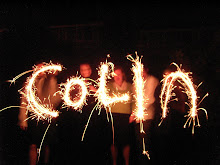
“The Hospitality of Polycarp” was inspired by the short document “The Martyrdom of Polycarp,” written shortly after the old man’s execution sometime around 155A.D. A much revered bishop of Smyrna in Asia Minor, Polycarp was in his mid-80’s when he was arrested and executed in one of the long series of persecutions that besieged the Christian church over the first 300 years of its existence.
As the story is told in the ancient document, under torture a servant had betrayed Polycarp’s whereabouts to the Roman authorities and in time soldiers arrived at his door to arrest him.
“As soon as he heard them arrive, he went down and chatted with them; and everyone there was struck by his age and his calmness, and surprised that the arrest of such an old man could be so urgent. In spite of the lateness of the hour he at once ordered them to be given all the food and drink they wanted; and then asked if he might be allowed an hour to pray undisturbed. When they consented, he got to his feet and prayed; so full of the grace of God, that two whole hours went by before he could bring himself to be silent again. All who heard him were struck with awe, and many of them began to regret this expedition against a man so old and saintly.”
Marked by this same sense of regret over having to deal with Polycarp, later that night a police commissioner extends an invitation to the aged bishop to renounce his faith:
“They took him into their carriage, sat down beside him, and addressed him persuasively. “Come now,” they said, “where is the harm in just saying ‘Caesar is Lord,’ and offering the incense, and so forth, when it will save your life?”
Even in the arena, with the lions waiting to be released upon their prey, the Governor is said to have pressed him one more time:
“The Governor… went on pressing him. “Take the oath, and I will let you go,” he told him. “Revile your Christ.” Polycarp’s reply was, “Eighty and six years have I served Him, and He has done me now wrong. How then can I blaspheme my King and my Saviour?”
In his interpretation of the events, Nesbitt compresses the force of these various attempts to let Polycarp recant into a single scene, set at the dinner table which has been offered to the arresting soldiers. While the 2nd Century account has the aged bishop in prayer during the meal, Nesbitt places Polycarp at the table with his captors, extending to them the sort of table hospitality which Jesus models throughout the gospels. Head lifted in laughter, Nesbitt’s Polycarp embodies a deeply challenging Christian truth: he is one who can not and will not confess any other Lord than Jesus, but he is also one who cannot do other than open his table to any and all, including those who would take his life. In this there are echoes of the observations Michael Welker makes regarding the last supper:
“The Supper makes clear that Jesus’ community is jeopardized not only “from outside,” but also “from inside” – even by his disciples. Judas’ betrayal, the disciples asleep in Gethsemane, and Peter’s denial make this clear. In the situation of external and internal danger, Jesus institutes the “memorial meal” of liberation.”
The occasion for the hospitality offered by Polycarp to his captors is triggered by a betrayal by one of his own servants, and yet, as with the last supper, it becomes a meal which proclaims the deep liberation found only in Christ.
 For last night's Table Church we took a road trip to Tickenham where Gilly had prepared a very fine Chili for us all. This was washed down with 'sugary goodness' and various sorbets. An excellent repast. During the evening we talked about a variety of subjects. Jon had just finished a paper on Oliver Cromwell which led to a discussion about the merits of those who think they are right because they are on a mission from God.
For last night's Table Church we took a road trip to Tickenham where Gilly had prepared a very fine Chili for us all. This was washed down with 'sugary goodness' and various sorbets. An excellent repast. During the evening we talked about a variety of subjects. Jon had just finished a paper on Oliver Cromwell which led to a discussion about the merits of those who think they are right because they are on a mission from God.







